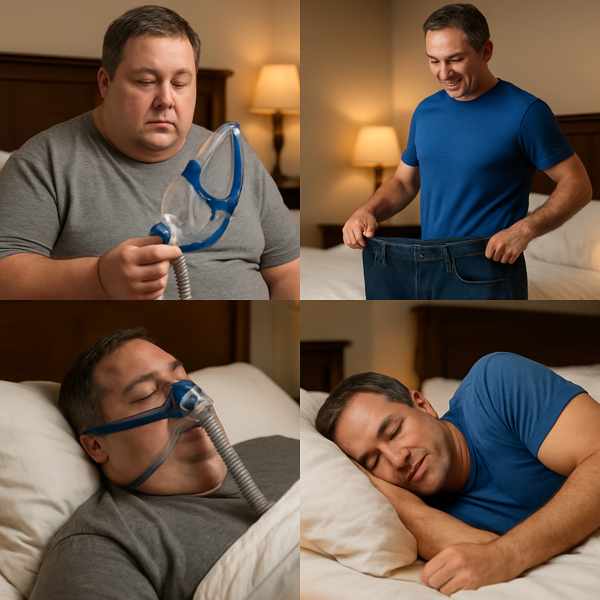
Sleep apnea is a serious sleep disorder that affects breathing during rest.
While not always a complete cure, weight loss often improves symptoms of sleep apnea significantly.
What Is Sleep Apnea?
The most common form is obstructive sleep apnea (OSA), caused by excess tissue in the throat.
Common symptoms include:
- Loud snoring
- Interrupted breathing patterns
- Excessive daytime tiredness
- Signs of disrupted oxygen flow
Why Excess Fat Matters
Carrying extra weight, especially around the neck and upper body, can put pressure on the airway during sleep.
Key risk factors include:
- More weight increases OSA risk
- Fat around the neck and jawline
- Poor muscle tone in the throat
Does Losing Weight Help OSA?
In many cases, losing weight can dramatically reverse or manage sleep apnea symptoms.
Possible benefits of weight loss:
- Improved nighttime breathing
- Reduced risk of waking up during sleep
- More natural treatment options
- Improved sleep quality and energy
However, weight loss may not cure sleep apnea in all cases — especially if anatomical issues or severe OSA are present.
What Results Can You Expect?
Even modest weight loss can have a big impact.
Tips:
- Start with small, achievable goals
- Combine diet and exercise
- Track your sleep changes
Healthy Ways to Lose Weight for Sleep Improvement
Effective read more strategies:
- Eat a balanced, whole-food diet
- Exercise regularly (cardio + strength)
- Sleep on your side
- These relax throat muscles and worsen apnea
Working with a nutritionist or sleep specialist can provide more personalized support.
What to Do if Symptoms Persist
While weight loss is helpful, it may not fully resolve sleep apnea for everyone.
- CPAP therapy (Continuous Positive Airway Pressure)
- Custom-fitted mouthpieces to reposition jaw and tongue
- To remove excess tissue or reposition structures
Is Weight Loss the Answer?
So, can weight loss cure sleep apnea? In many cases, it can help manage the condition.
Talk to your healthcare provider, make informed decisions, and take proactive steps toward better health and rest.